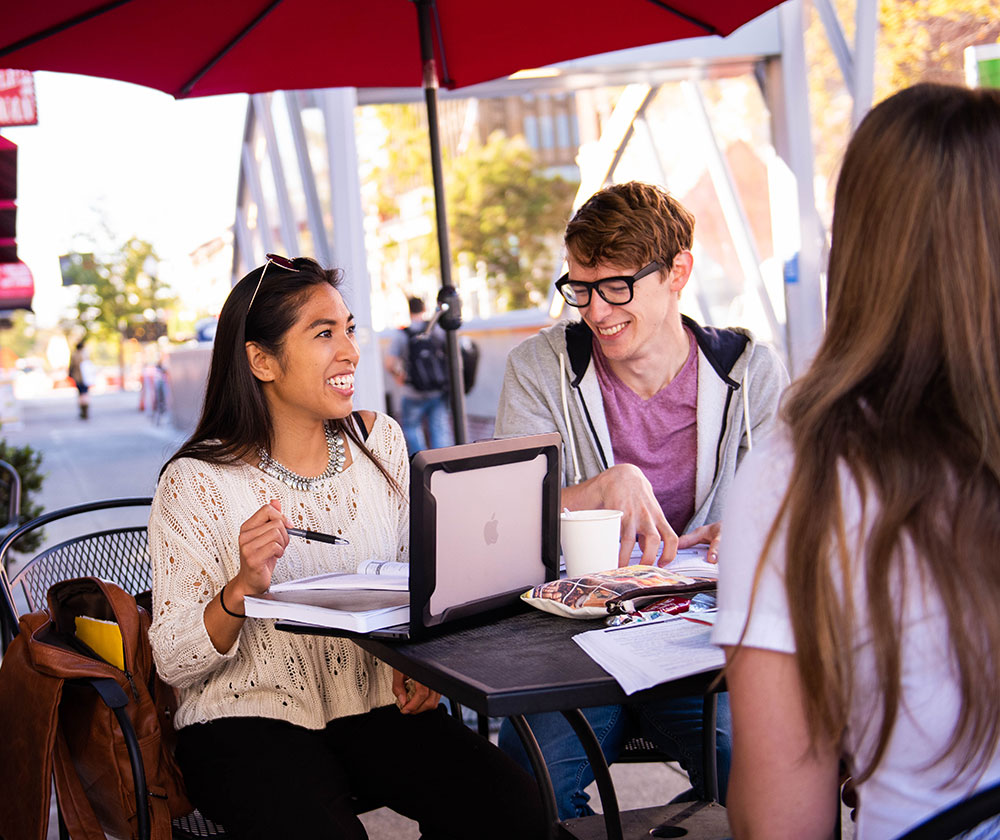Distributed Learning Modality
PLTS’s Distributed Learning (DL) modality combines the flexibility of online learning with the relational and spiritual components that make seminary learning so formative.
Community and Context
At PLTS, we prioritze the relational interaction and spiritual formation that allows seminarians to be well prepared to lead in ministry settings.
- Every online class involves interaction with classmates and instructors through online forums and Zoom meetings.
- Students are required to come in-person for community building and in-person intensive courses.
- Courses and curricular components are designed to help students contextualize their learning rhrough projects and assignments that get you involved in a variety of ministry settings. Learning is not just in in the online classroom, with instructors and classmates, but also with your congregation and community.
- Every Wednesday all members of the PLTS community, including students, faculty, staff, and members of the community, are invited to worship together in a hybrid format, gathering together in-person and on Zoom.
- Students partiicpate in spiritual care and formation groups with small groups of other students each semester.
Accessibility
Our Distributed Learning modality is primarily asynchronous. This means that you are not meeting with a class at a specific time each week. Instead, your “class time” consists of engaging in online activities at your own pace and schedule.
- Mostly asynchronous courses
- Synchronous Zoom class requirements
- In-person intensive requirements
- Contextual learning components where you live
Quality
PLTS online courses are designed with the student experience at the forefront. Our faculty have worked with a learning technology specialist and utilized Quality Matters standards to design creative assignments and course components that are well-suited to online learning.
FAQs
What are “Quality Matters” standards?
Quality Matters (QM) is a nationally recognized, faculty-centered, peer review process designed to certify the quality of online courses. Today, QM is considered the gold standard for online course design, advancing quality assurance practices in teaching and learning.
What is the on-campus requirement for DL learners?
DL students are required to come to the Berkeley campus for week-long intensives throughout your program. During the first year, you are required to attend “Life and Learning Together Week” for orientation, community building, and a kickoff to your seminary experience. In future January and August terms you return to PLTS for in-person classes. In total, MDiv students can expect to attend in-person intensives 6 times over the course of your program, and MASSC students can expect to attend in-person intensives 4 times over the course of your program . PLTS offers a DL Travel and Lodging Reimbursement Scholarship to help cover the costs of visiting Berkeley for these requirements.
How will I meet my contextual education requirements?
DL students engage in Ministry in Context and other contextual education requirements in your home communities in consultation with the Director of Contextual Education.
What technology skills do I need?
DL students should feel comfortable navigating a web browser and basic computer programs. Online courses are taught in a platform called Moodle and utilize voice recording and other online tools as part of the course instruction. Basic support is available to help students learn new programs required for class.
What technology equipment do I need?
DL students will be most successful using an up-to-date computer with consistent internet connection and access to a webcam.
How much time should I expect to spend doing coursework each week?
Just like an in-person class, online classes include both “in-class” time and out-of-class assignments. Students should expect to spend one hour per credit doing “in-class” work each week, like engaging in online discussion, posting responses to readings and professor videos, etc. In addition, students should expect to spend two hours per credit doing out-of-class work, like readings, papers, and other assignments. For example, for a 3-credit course you should expect to spend an average total of 9 hours doing work for that course each week.
How will I get to know my professors?
PLTS professors love getting to know their students! Online courses incorporate video and voice recording components to help facilitate those connections between you, your professors, and your peers. You will also have a chance to meet many of your professors each time you are here in person, and your instructors work hard to make themselves available to you whenever you need to connect.
